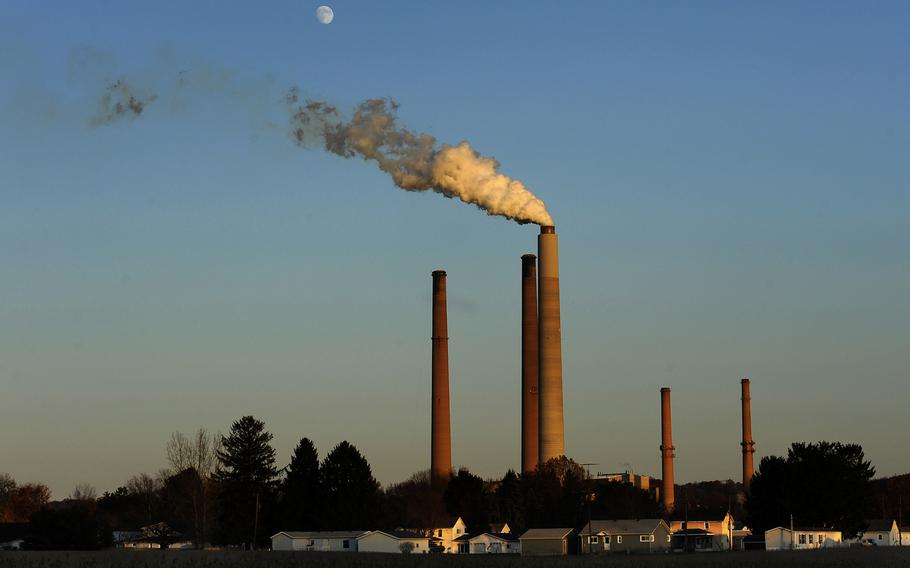
The American Electric Power coal burning plant in Conesville, Ohio. (Michael S. Williamson/The Washington Post)
Eliminating air pollution caused by burning fossil fuels would prevent more than 50,000 premature deaths and provide more than $600 billion in health benefits in the United States every year, according to a new study by University of Wisconsin-Madison researchers.
Published in the journal GeoHealth, the study reports the considerable health benefits of removing from the air harmful fine particulates, sulfur dioxide and nitrogen oxides produced by electricity generation, transportation, industrial activities and building functions such as heating and cooking. Highway vehicles make up the largest single share.
These economic activities from coal, oil and natural gas are also major sources of carbon dioxide emissions that cause climate change, so cutting back on their emissions provides additional benefits.
Unlike reports that emphasize the daunting costs of climate action, this one stressed the advantages of taking measures to reduce pollution.
"We are trying to shift mindsets from burdens to benefits," said Jonathan A. Patz, a professor of health and the environment at the University of Wisconsin-Madison's Nelson Institute for Environmental Studies.
"Our work provides a sense of the scale of the air quality health benefits that could accompany deep decarbonization of the U.S. energy system," said Nicholas A. Mailloux, lead author of the study and a graduate student at the Nelson Institute. "Shifting to clean energy sources can provide enormous benefit for public health in the near term while mitigating climate change in the longer term."
The study uses models from the Environmental Protection Agency, notably its CO-Benefits Risk Assessment, or COBRA, to look at the impact of local, state and national policy on separate areas around the country. It shows that while the cost of overhauling energy industries can be local, so, too, are the benefits.
"Between 32 percent and 95 percent of the health benefits from eliminating emissions in a region will remain in that region," the study says. On average, slightly more than two-thirds of the health benefits of removing emissions in a region stay in that region.
The Southwest, for example, would retain 95 percent of the benefits if it moved alone to eliminate fine particulate matter. The Mountain States, however, would retain only a third of their benefits, which would flow to large population centers downwind.
"What we do is look at all at once, if you were to remove fossil fuel emissions from these different sectors, how many lives would be saved, how many emissions avoided, and the numbers are pretty big," Patz said.
"The report highlights the air quality benefits of reducing greenhouse gas emissions by transitioning the energy system away from fossil fuels," said Susan Anenberg, director of George Washington University's Climate and Health Institute, who was not involved in the study. In addition, she said, "it helps us to think about policies and what level of policies are needed to address this problem."
Patz said that "people look at this as such a huge challenge, but when you look at the health repercussions of switching to clean energy, the benefits are enormous."